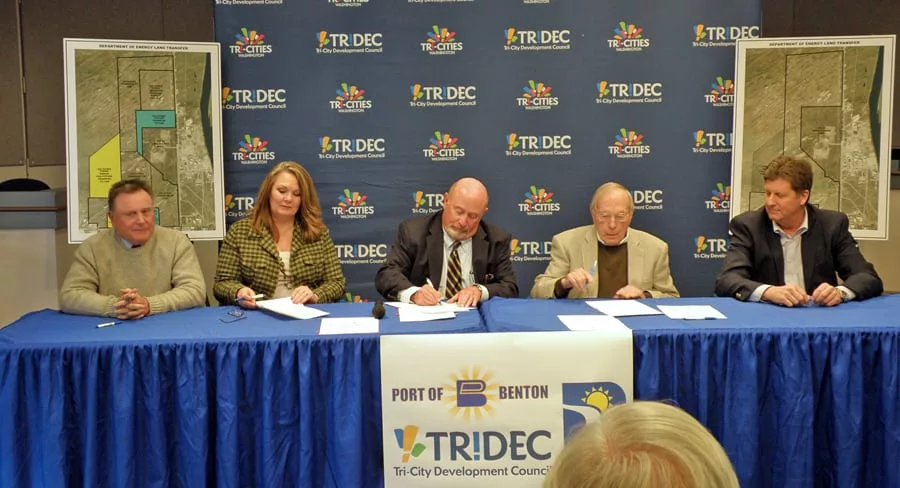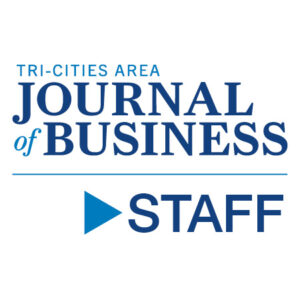
Home » TRIDEC transfers former DOE land to Port of Benton, Richland
TRIDEC transfers former DOE land to Port of Benton, Richland

February 17, 2016
City of Richland, Port of Benton and Tri-City Development Council officials celebrated the official transfer of 1,341 acres of former Department of Energy land to the city and port in early February.
[blockquote quote="Part of our challenge will be convincing others how it would best be used." source="Robert Thompson, Mayor of the City of Richland" align="right" max_width="300px"]
Last fall, the U.S. Department of Energy finalized the transfer of 1,641 acres to TRIDEC, stipulating the land be turned over to the Port of Benton, the City of Richland and Benton County for economic development purposes.
The land was seized by the U.S. government in 1943 as part of the Manhattan Project to make plutonium for the atomic bomb that was dropped on Nagasaki, Japan in 1945, leading to the end of W.W. II.
This is the first time since 1998 the DOE has returned land to the community. The land must be used for economic development to help create a more diversified economic base in the community, ultimately to help replace many of the Hanford jobs that will be lost as cleanup at the site is completed.
The Port of Benton received 760 acres and the City of Richland received 581 acres.
“Today, from my standpoint, I get to wash my hands of this,” said Carl Adrian, TRIDEC president.
Bob Larson, Port of Benton commissioner, said the port will work closely with the City of Richland to develop the land.
Larson said they hope the large parcel, when developed properly, will draw the interest of a large manufacturing company, ideally an energy company.
The land is situated well, with roads, railroad spurs and other utilities within reach.
“Part of our challenge will be convincing others how it would best be used,” said Richland Mayor Robert Thompson.
Scott Keller, of the Port of Benton, said it will be at least five years before any industrial development begins to occur on the land. First, a master plan must be developed.
“We are applying for grant funds for a master plan, which will be done jointly with the City of Richland,” Keller said.
But the acquisition is important for both the city and the port, Keller said.
It helps leverage the investments the city and port have already made in North Richland, and the land connects with those properties.
The land is also included in the Tri-Cities Research District, one of Washington’s 15 Innovation Partnership Zones, which may help attract energy companies to the area because of the potential partnership capabilities with WSU Tri-Cities and Pacific Northwest National Laboratories, said Diahann Howard, the research district’s executive director.
Adrian said the remaining 300 acres was initially set aside for an solar project developer, and that company began working with Energy Northwest to develop a project.
“We are currently working with Energy Northwest to transfer the balance of the property to them,” Adrian said. “The solar project is still in play, although it seems like the best path is to transfer (the land) to Energy Northwest and let them work with the solar company.”
That plan could change, Adrian noted, but for now, that is the plan for the remaining acreage.
Real Estate & Construction Local News





